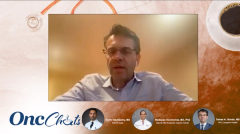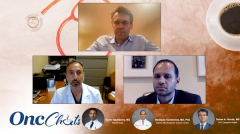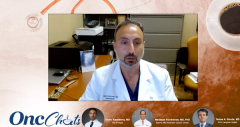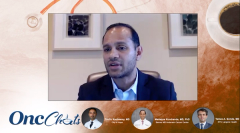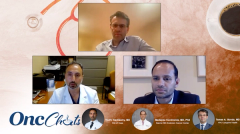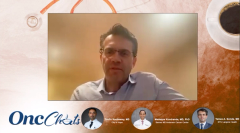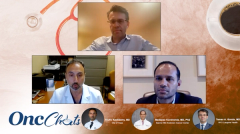
Leveraging Endoscopic Ultrasound in Pancreatic Cancer: Looking to the Future
In this final episode of OncChats: Leveraging Endoscopic Ultrasound in Pancreatic Cancer, Toufic A. Kachaamy, MD, Madappa Kundranda, MD, PhD, and Tamas A. Gonda, MD, reiterate that the role of endoscopic therapies in pancreatic cancer continues to evolve.
Episodes in this series

In this final episode of OncChats: Leveraging Endoscopic Ultrasound in Pancreatic Cancer, Toufic A. Kachaamy, MD, of City of Hope, Madappa Kundranda, MD, PhD, of Banner MD Anderson Cancer Center, and Tamas A. Gonda, MD, of NYU Langone, reiterate that the role of endoscopic therapies in pancreatic cancer continues to evolve.
Kachaamy: This is a very tough disease. We're still searching for a lot of answers in this area. Thank you both for sharing your expertise and educating us. Any final comments?
Gonda: I would just say that this is really an evolving area. I think endoscopic therapies are finding their place in the treatment of certain pancreatic tumors, and predominantly, for neuroendocrine tumors. As Dr Kundranda pointed out, for adenocarcinoma, I think perhaps the most important information we have is that ablation therapy appears to be reasonably safe. I think we will have to do a lot to understand the biology of it, to understand whether it really adds to the current type of treatments [we use].
We do have the advantage [in that] every ablation can be coupled, and should be coupled, with an immediate biopsy which is a unique thing in the treatment of pancreatic cancer. At multiple points, you can biopsy and understand what is changing, if anything is changing, about the disease. That is perhaps one advantage that [endoscopic ultrasound] has over [what has been observed in] many other pharmacological or clinical trials. We really should take advantage of it [to] understand the biology and identify the target, whether it’s immunological or otherwise, [so] we [know what we] should be coupling with this therapy. I think the clinical trials that are now ongoing, to a large extent, are [evaluating that]. Whether they will deliver that result is to be seen.


